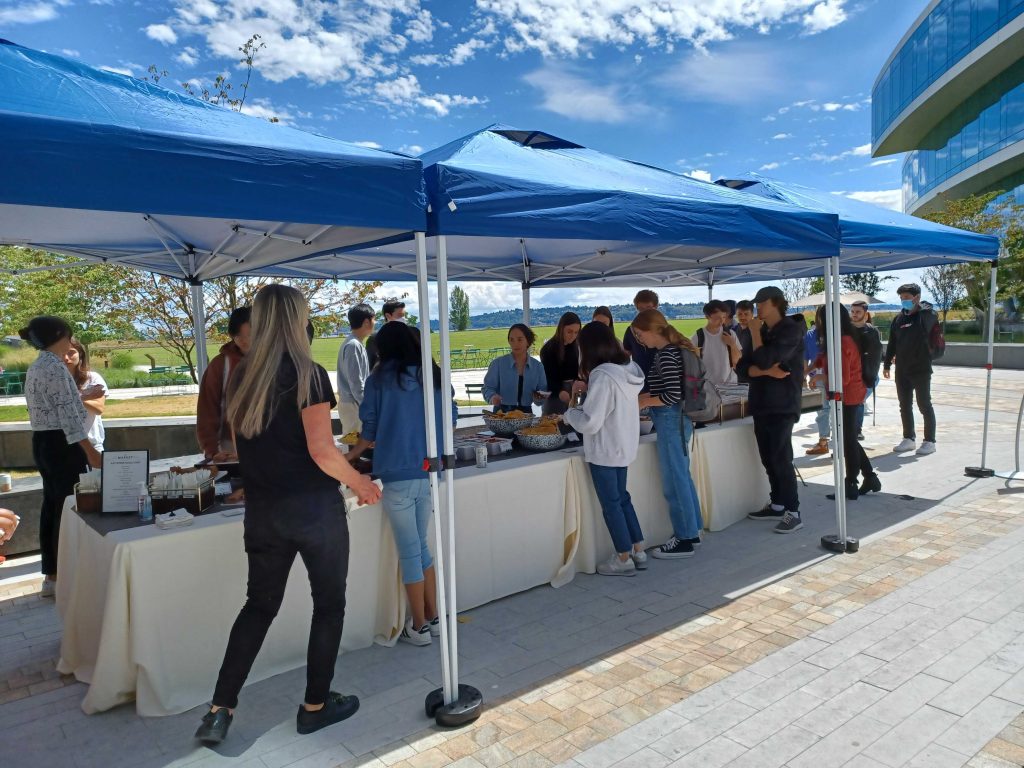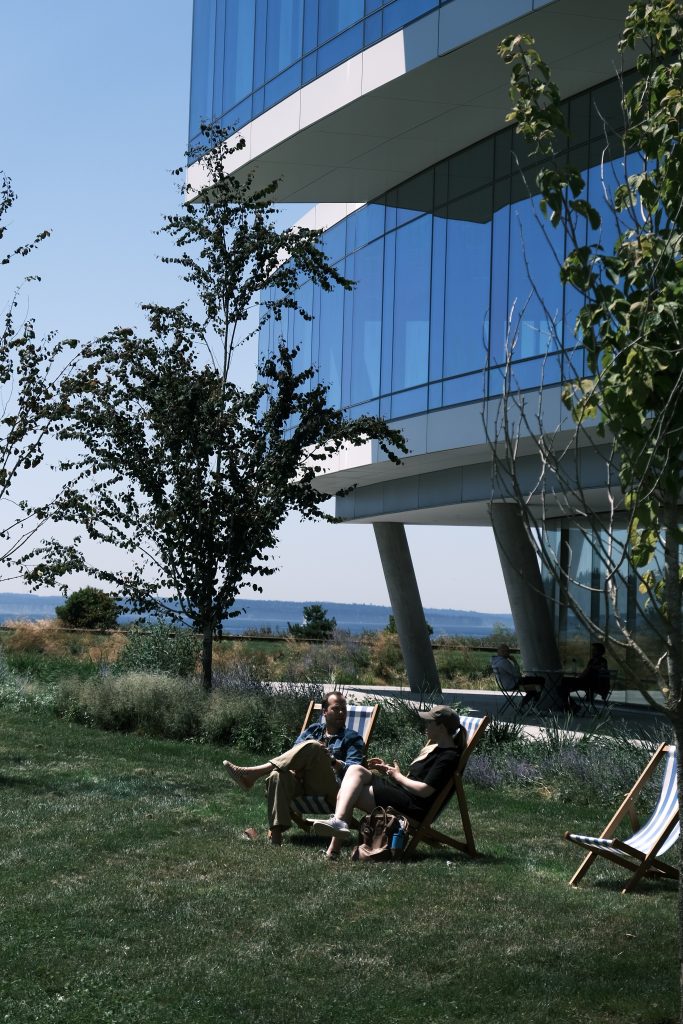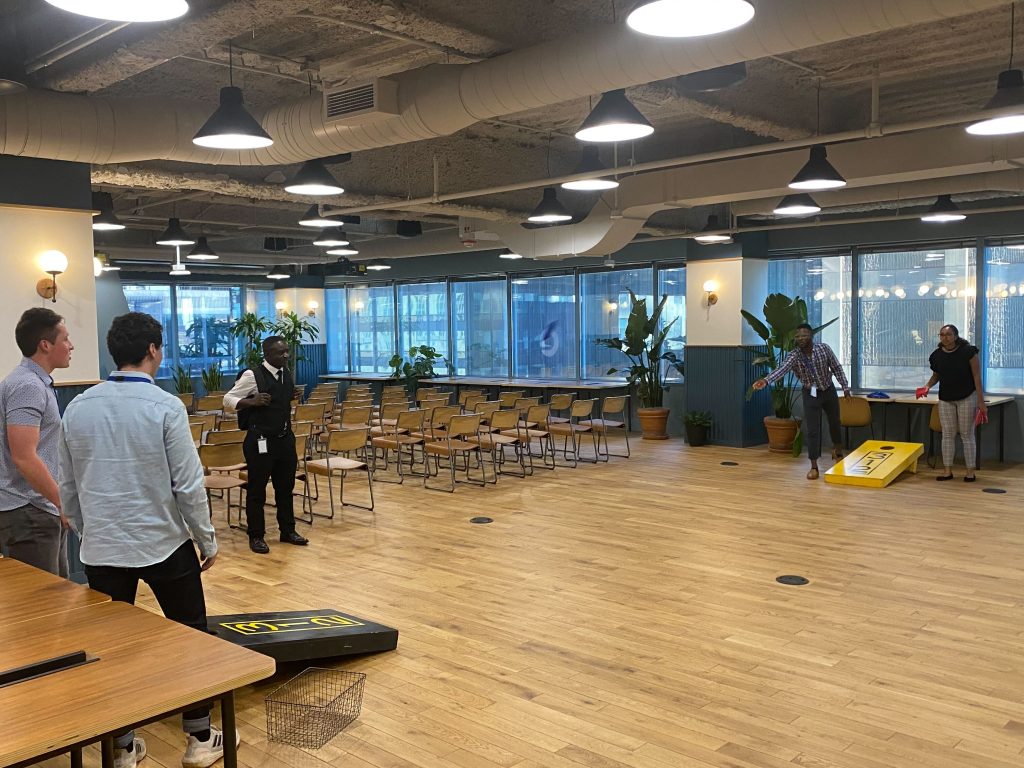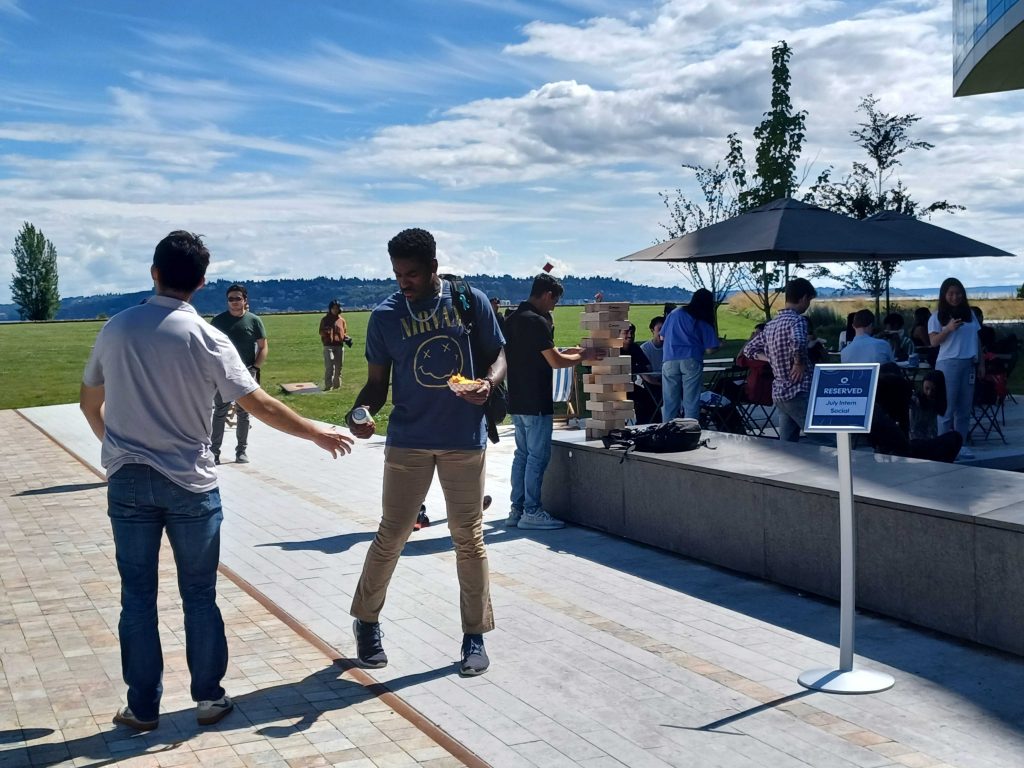Search Contract Jobs*
Hello!
You’re now leaving the Expedia Group careers site and will be directed to our supplier partner’s website to explore and apply for contract job opportunities with Expedia Group. The website is operated by Expedia Group’s employment partner.
*currently only offered in USA & UK
Jobs
Search Expedia Group Jobs
Attending conferences can be a game-changer for career growth. You’ll learn about industry trends, gain new skills, and make all kinds of connections. With all these opportunities, it’s important to plan how you show up! We caught up with some Expedians and put together some of the best tips we have for attending conferences.

1. Connect with the event organizers on social media
To avoid any chance of FOMO you can follow the conference hashtag, and account, on social media. Often at conferences, interesting information is shared about speakers, organizations, and there might be surprise events, or talks, that pop up ad-hoc, and you’ll want to be the first to know!
2. Know the schedule, the event space, and plan
Conference days can be busy! There’s often a lot to see and do, so it can be useful to review the schedule in advance and choose the sessions you want to engage with. Also, think about when to give yourself a break to reflect on what you’ve attended, and to re-energize! Looking at a map of the conference space before you attend minimizes the number of things you need to worry about during the conference itself, so you can put your focus where it’s needed. Try to also get an understanding of what you want to get out of the conference, to direct your attendance, and your conversations. Do you want to network and meet people, or learn from speakers and exhibitors, or both?

3. Research the companies attending
Usually, the event organizers will share information on the companies that will be attending. This is a great opportunity to do some homework and build your knowledge of the exhibitors. With this knowledge on your side, you’ve got a great chance to have more meaningful conversations and engage with their content by asking more tailored questions.
4. Elevator pitch
Prepare an elevator pitch and know how it connects to what you want to get out of the event. An elevator pitch is relatively short, around a minute or less, and succinctly tells the person you are speaking with who you are and what makes you unique, whilst showing initiative and enthusiasm. Not everyone enjoys talking about themselves, especially in a short pitch, but it can be incredibly helpful. Sometimes starting small helps, having it written down and then rehearsing it. The more familiar the speech the more confident you’ll be sharing it.
5. What to bring
It sounds simple, but a handy checklist usually does the trick. Think: phone/laptop charger, chapstick, hand sanitizer, snacks, notepad, pens.
6. What you wear
Our recommendation is to dress comfortably. Wear a lightweight outfit and importantly make sure your shoes are extra comfortable as you could be active all day!

7. Out of office
It’s always a tricky one but try and have the approach that “out of the office means out of office”. Disconnect from work and school, and set your reply. Prepare your time in advance so that your colleagues don’t need your support on the day. Being present at an in-person conference can be extremely rewarding, so minimizing distractions can help with making better connections. You don’t have to disconnect completely, but reducing how much you check on work gives yourself a better chance of making the most of the conference by having conversations with event attendees around you.
8. Talking to speakers
It isn’t necessarily the easiest thing to do but it can be an incredibly enriching experience to speak with people presenting at a conference as well as a great networking moment. Write down some interesting points you’d like to ask about and wait for the speaker to have a chance to regain their composure before approaching them and asking your questions.
It might be hard to even identify who you want to go and see. Titles of talks don’t always give everything away. It helps to research the speakers, watch videos of talks they may have given before,

9. Networking
We’ve touched on it already but speaking to people, and making connections, can really enhance the experience of a conference. A classic tip is to use LinkedIn, a quick and easy way to make that connection. To make this even easier, you can create a QR code (many websites offer these for free) that takes the people you meet straight to your profile. Don’t already have a profile? No problem, here’s a guide on how to set one up.
It can also be handy to have some conversation starters to break the ice, such as asking what people think about the speakers, the event, why they decided to come, what sessions they’re thinking of attending etc.
During speaker presentations there can be social media topic discussions and threads to engage in, which can also be a great outlet for those less comfortable with in-person networking.
10. Get social
Let people know that you’re there. A simple photo of yourself, a group of people you’re with, or cool conference spaces can be very engaging content! Additionally, sharing slides or quotes from speakers are great talking points. Right, so you have the content, next you should think about… timing. Content posted during a conference has its benefits because people also attending will be more engaged. Tagging organizations, and using the conference hashtag, in your post will also help the audience it can reach.

11. Try something new
Organizations might be promoting training courses, volunteering opportunities, and career advice. Take the chance to learn new skills, have conversations you wouldn’t normally have and find out about different industries. You never know what you might find out.
12. Enjoy your time
Although you may have goals you want to achieve from the conference, make sure you enjoy the conference and have some fun! It’s important not to put too much pressure on yourself, there will be speeches you miss, networking that doesn’t work out, and knowledge you don’t action. And that’s okay!

13. Follow up after the event
Right, so you’ve been at the conference, made some great notes from the speakers and exhibitors you engaged with, had an awesome time networking and have new connections, what next?
You don’t want to have a great conversation and then never talk to someone again. If networking is on your mind you want to make sure that you stay in touch with people after the conference. You also had a lot of learning opportunities at the conference (and made great notes), so why not knowledge share with your colleagues, friends, and family? You’ll spread your new skills and knowledge—and hopefully, those you share with will reciprocate the next time they go to a great event.
Are you looking for a career filled with purpose, travel, and learning? Browse through our open roles here!
